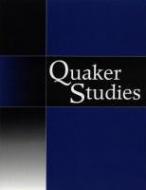
Abstract
Acknowledgement of the significance of reflexivity in social research has generated numerous autobiographical references in introductions to reports of field studies of faith communities. In particular the relevance of the researcher's gender- or at least female gender - has been a subject for scholarly reflection. Moreover, the insider/outsider dichotomy has been invoked and contested, and the changing relationship between the ethnographer and the field during field work has been charted. In this article it is some ethnographers' religious context and orientation that is the focus. With particular reference to some contemporary British Quakers whose field work has had a religious focus, including the Society of Friends itself, this article suggests that insights and concerns that are characteristic of a researcher's faith community may find expression in the ethnographic research process. Both the mutual reinforcement and tension between the assumptions and practices underpinning being a Quaker and being an ethnographer are considered. Quakers' 'marginality', their concern for interfaith dialogue and understanding of listening are factors which receive attention. Aspects of this research process may in turn, it is suggested, contribute to the researcher's spiritual journey.
Recommended Citation
Nesbitt, Eleanor
(1999)
"Friend in the Field: A Reflexive Approach to Being a Quaker Ethnographer,"
Quaker Studies: Vol. 4:
Iss.
2, Article 1.
Available at:
https://digitalcommons.georgefox.edu/quakerstudies/vol4/iss2/1
